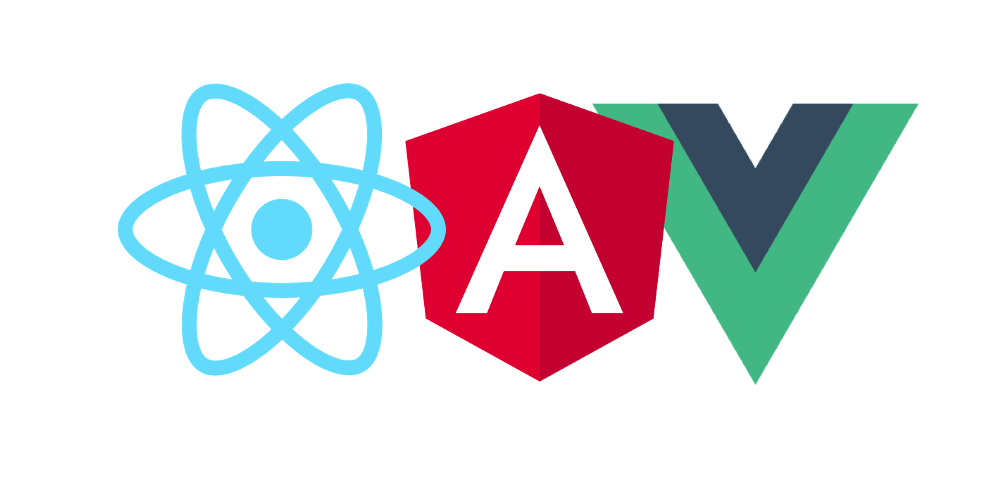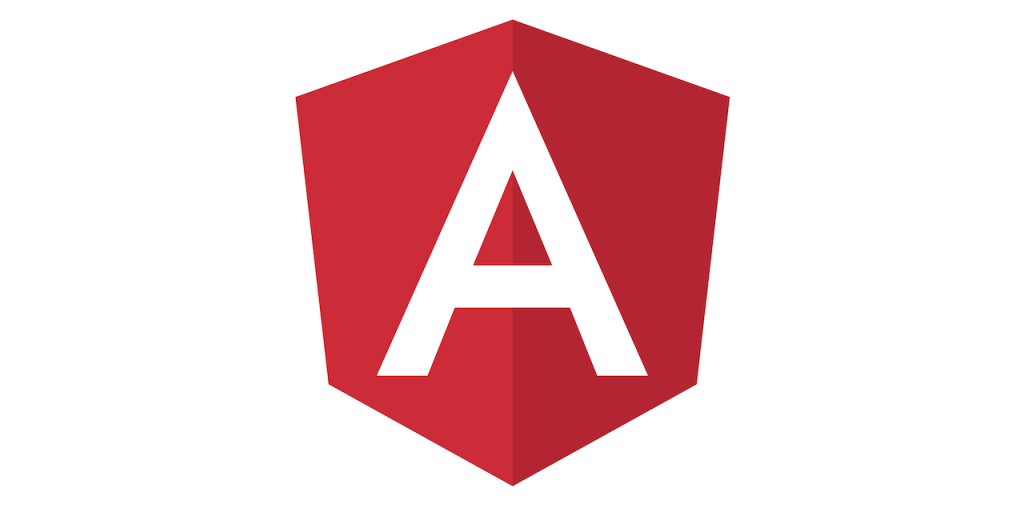So you want to know the best JavaScript frameworks to learn in 2023? Well, you’re in luck, because today we are going to breakdown the top JavaScript frameworks that you should be considering for your next project.
First, we are going to be talking about the big three: Angular, React & Vue. After, we will be breaking down some alternative options that we think deserve to be mentioned.
So without further ado, let’s jump right in!
The Top 3: Angular, React, & Vue

If you’re new to frontend development, you might be curious about what the most popular and stable frontend frameworks in frontend development are. Let me be the first to tell you that Angular, React, & Vue are the three main options you should be looking at in 2023. Don’t waste your time with other articles that tell you otherwise!
If you are trying to build a quality application, these three have stood the test of time and are proven to be great options for anything from small personal projects to enterprise software.
Angular

Angular is a framework built with TypeScript by Google. It is well known for being a scalable, component-based framework that has a wide variety of features such as routing, forms management, client-server communication, a suite of developer tools, and much more.
Angular was first introduced to solve scaling problems at Google. It was released as open-source to allow other developers to benefit and contribute to it. Making it one of the best frontend frameworks available today.
Given the size of Angular, it is generally used for large-scale applications that need extra overhead and tooling. Although it isn’t as lightweight as React or Vue, it is a valuable tool that is certainly worth learning today.
Benefits of Angular
The main benefit of Angular is that it is a full-scale framework with all the tools you need to build an enterprise-level application. The framework is very opinionated about how you do things, which means you spend less time making design choices and more time writing consistently quality code. If you’re aiming to build a large application, Angular is the way to go.
Additionally, Angular developers are becoming less and less common, which means that you can earn a good salary and will be less expendable in an Angular developer job compared to other frameworks.
Drawbacks of Angular
The main drawback of Angular is that it is notoriously difficult to learn. There are many more tools than there are in other frameworks, like React and Vue, and it isn’t quite as intuitive by comparison. Although if you understand JavaScript well, it shouldn’t be too tough to learn.
Angular is also falling out of popularity compared to React and Vue, so it may be less valuable to learn if it is the first and only framework you know.
If you’re interested in learning Angular, check out this best-selling Angular course here!
React
React is a framework built by Facebook. It is well known for being the first framework to utilize a virtual DOM that allows quick and efficient changes to frontend state changes. Unlike Angular, React is lightweight and technically considered a library. It is unopinionated and allows you to pull your own tools outside of the core package to build your application. In 2023, React is the most popular frontend ‘framework’.
React was first introduced by Facebook to streamline updating the newsfeed, improve overall performance, and simplify code maintenance. Just like Angular, React is open-source and allows other developers to contribute, test, and use the library.
Benefits of React
The main benefit is that it is a lightweight and simple framework to learn. It is by far the most popular framework in 2023 and there are a ton of resources to help you learn React. Additionally, since it is not opinionated, it gives you a lot of freedom in how you write your application. Including the tools you use and the way you write code.
Given its popularity, React jobs are also plentiful. This means that finding a job would be much easier than React or Vue. Although you should remember there is more competition as well.
Drawbacks of React
The main drawback of React is that it is not a full framework. This means that if you are building a complex frontend, you will likely be relying on additional libraries, like redux. Although the added flexibility sounds like a great thing, it means you have more opportunities to introduce flaws in your application. One of the major benefits of other frameworks is that they utilize industry standards that you can follow in order to write quality apps.
Additionally, React can be difficult to learn if you don’t know JavaScript.
If you’re interested in learning React, check out this best-selling React course here!
Vue

Vue is a progressive framework, unlike React and Angular, Vue allow you to pick and choose the tools you use in conjunction with the core library. In that sense, you can use Vue similarily to React or similarily to Angular. Vue builds on top of HTML, CSS, and JavaScript and provides a component-based and declarative model.
Unlike the other two frameworks, Vue isn’t owned by a giant enterprise. This means Vue doesn’t have constant [unnecessary] updates. Instead, Vue has a feeling of, “by developers, for developers” that I am a big fan of.
Vue was created to take the best parts of Angular and improve upon them. However, the core library of Vue feels more like an improvement upon React. Resulting in a simpler, improved version of both languages.
Benefits of Vue
The biggest benefit of Vue is that it is much simpler to learn than React and Angular. Since it was created based on the prior two frameworks, it really does feel like an improvement on the other two.
Vue sticks true to original web development, utilizing pure HTML, CSS, and JavaScript to make the framework an easy transition to learn from the core languages used to make up the web.
Finally, Vue is a great choice for small and large projects due to its progressive nature. It can be a lightweight or an all-encompassing solution.
Drawbacks of Vue
Although Vue sounds great in theory, it comes with its fair share of drawbacks. For one, it is not as popular as the other two frameworks. This means there are fewer companies using it in production to replicate and fewer questions on StackOverflow to solve general issues.
The lack of popularity also means that code collaboration can be more difficult. If fewer people know the framework, fewer people can contribute to your project. A big consideration for companies hoping to find the perfect frontend framework.
If you’re interested in learning Vue, check out this best-selling Vue course here!
Upcoming & Unique JavaScript Frameworks To Consider
Although the top three frameworks are the main ones you should be considering for your development projects, below we are going to include some additional projects that are unique or up-and-coming in the industry!
Svelte

Svelte takes a very unqiue approach to frontend development compared to React, Vue and Angular. Instead of doing most of the work during runtime, Svelte compiles your JavaScript user interfaces before it is run in your browser. Saving the bulk of work to be done outside of the browser and speeding up the experience of your viewers.
Additionally, Svelte updates the real DOM [the traditional way but with efficient processess] instead of creating a virtual DOM to work with like React and Vue.
Svelte is a fairly new frontend framework, however, it is quickly gaining popularity as a viable option for production code.
Svelte was created to be extremely lightweight. It only ships your business logic and no additional packages to your browser.
Benefits of Svelte
The main benefit of Svelte is that it is extremely lightweight. There is no overhead shipped to your browser since the Svelte framework does all its work before being sent to the browser. So all you have left is efficiently compiled JavaScript code.
Additionally, if you ever did run into scalability issues, you could theoretically compile the code directly into machine code, similar to Glimmer. However, that would either need to be implemented by the core developers or by the team.
Drawbacks of Svelte
Although Svelte is a production-ready framework, it is a drastically different way of writing frontends from the three main options. So if you run into issues, there are not many other examples to look at for guidance. With any of the other frameworks you could see how things are solved in other frameworks but with Svelte you are more or less on your own.
Additionally, since Svelte is not as popular as the other options, it has the same drawbacks as Vue. There simply aren’t as many question threads dealing with common issues within the framework or developers working with the framework.
I am excited to see how Svelte evolves in the future. That being said, I can’t personally recommend you use it for enterprise-level software just yet.
If you’re interested in learning Svelte, check out this best-selling Svelte course here!
Summary: The Best Javascript Frameworks In 2023
So there you have it, the best JavaScript frameworks in 2023!
If you’re looking for a framework in 2023 to build quality code, it’s best to stick with React, Vue, or Angular. These are the most popular options. Most of the common issues with building software in these frameworks have been solved before. Although these three frameworks have their own benefits and drawbacks, they are all pretty similar. Alternatively, you can go with a framework like Svelte that takes a radically different approach to building your next project.
If you are new to development and want some free resources, check these out!
